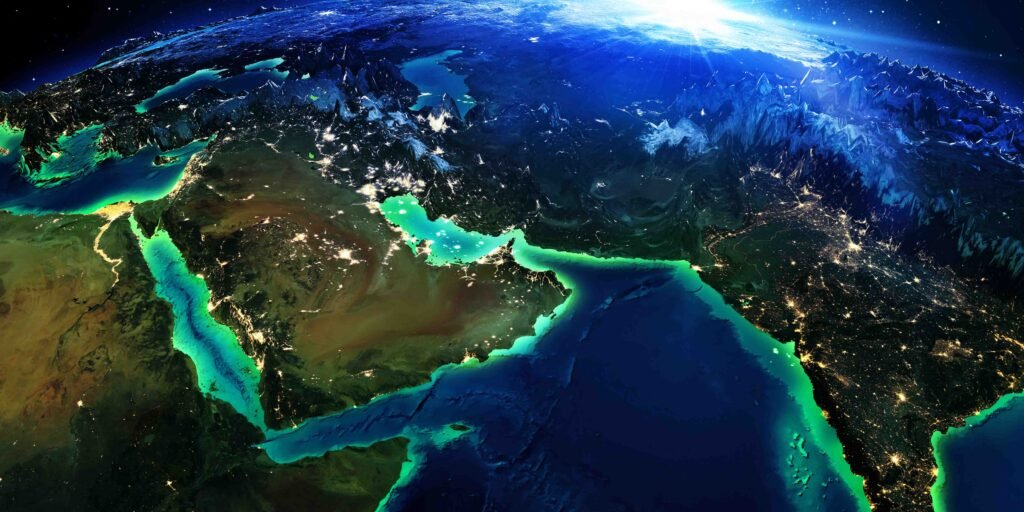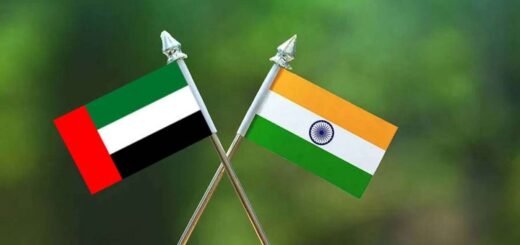India-GCC Relations: A new era of engagement

As the world is undergoing a rapid shift geopolitically due to changes in power relations among the nations, India is charting a new path in its foreign policy engagements. The Bipolar world order established after the disintegration of the USSR has given way to a multipolar world with each nation congregating together to form a collective order to tide over the concurring challenges like climate change, emerging technologies, terrorism, etc. In this scenario, Gulf Cooperation Council, or GCC, has been playing a pivotal role in the whole of the Middle East or West Asia.
GCC is a six-member regional Intergovernmental grouping comprising Saudi Arabia, United Arab Emirates, Bahrain, Oman, Qatar, and Kuwait. It was established in the year 1981 to signify Arab unity in the field of politics and Economics.
External Affairs Minister’s visit
Recently the External Affairs Minister of India, Dr S. Jaishankar, visited the GCC secretariat in Riyadh in Saudi Arabia to bolster the relationship between the two. There he met the Secretary General of the GCC, Dr Nayef Falah Mubarak Al-Hajraf. Both discussed the issues of Mutual interests and expressed their opinions on the current regional and global situation.
During the talks, both leaders signed the Memorandum of Understanding (MOU) to establish a mechanism for holding annual consultations between India and the Partner countries of GCC. This takes the relationship to another level commensurate with other regional organizations like the European Union. The MoU also signifies the growing convergence of interests between India and the GCC. States in the GCC, like Saudi Arabia and the United Arab Emirates, are also strengthening bilateral ties with India on common interests like Terrorism and Extremism, Energy Security, Trade and Commerce, etc.
Thus annual consultation will enhance understanding between the two blocs and provide the requisite platform to share arguments and counter-arguments on varied global issues.
Why does GCC matters to India?
India has been tied to the Arab nations of west Asia since Ancient times. From establishing the trade route by the Arab merchants and their counterparts in south India to the coming of intellectual minds like writers, astronomers, and explorers, the relationship in this decade has acquired a multidimensional character.
Economically India is dependent upon the GCC countries for its 40% of crude oil requirement. 86% of India’s oil requirement is imported, which is necessary to power its growing Economy. According to data from the Ministry of Commerce, the bilateral trade between India and GCC countries in the year 2020-21 was USD 87.36 Billion, of which India’s exports were USD 28.06 billion. The trade ties have seen a spurt due to the significant import of crude oil after the opening of the Economy after COVID-19. The two-way trade basket includes non-oil commodities like gems and pearls, basmati rice, and others.
Demographically, significant Indian expatriates travel to the Middle East every year for Job-Related purposes. According to the data from the Indian Embassy in Riyadh in Saudi Arabia, around 6.5 million Indian workers reside in west Asia. These populations engaged, especially in blue-collar jobs, send Useful resources as remittances, which play a huge role in powering the domestic Economy. The COVID-19 pandemic has led to a substantial reduction in outward remittances to India because of the closing of economic activity in West Asia. As per ICRIER, the drop in remittances to India has led to many families in states like Kerela and Tamil Nadu seeing a reduction in their purchasing power capacity, thus pushing them to the mouth of poverty.
The countries in the GCC act as a gateway to the European continent for trade and connectivity purposes. India is a part of the Multi nation connectivity project called INSTC, i.e., The International North-South Transport Corridor, which connects the regions of Asia to Central Asia to Europe. This multi-modal connectivity project will significantly reduce the logistical costs between the continents, thus contributing to regional and sub-regional cooperation.

The geopolitical significance of GCC nations
India sees the GCC countries as bulwarks against the Organisation of Islamic Countries (OIC). Pakistan, a member of OIC, has repeatedly used the platform for anti-India activities like raising the Kashmir issue. The attempt by the Pakistani statesman to politicize the Kashmir issue has often put the Indian Government in a tight spot. After the Indian Government abolished the Jammu and Kashmir state’s special status, the OIC secretariat issued strong statements condemning the Indian move. But the GCC and its constituent nation refrained from speaking against the move terming the event as India’s Internal Matter.
Even more than engagement, India cannot afford to remain out of sync with the GCC block as it will create a significant vacuum in the region after the American state shifts its presence from the Middle East to Indo-Pacific to counter china. The actions of former President of the USA Donald Trump to disengage from the operations in the volatile Middle East Region have led to countries like China and Russia filling up that space. Russia and China are engaged in a slew of activities in the region ranging from economic to security providers, which can lead to their direct influence on other countries.
Roadblocks that India should be mindful of
In recent times the domestic situation in India has put strains on its ties with the Arab world. The communal tensions due to statements of some politicians have led to several of India’s critical partners in the region issuing strong statements demarche against their Indian counterparts. The Qatari Government, considered a traditional partner of New Delhi, cancelled the state reception of the Indian Vice president Shri Venkya Naidu. That has also put other partners of India, like, UAE and Saudi Arabia, in a tight spot while dealing with the issue.
Way Forward
Under Prime Minister Narendra Modi, India has invested substantial political resources in shaping its relations with the Arab Nations. Since coming to power, PM Modi has travelled numerous times to Countries like UAE and Saudi Arabia. That demonstrates the importance of Arab Nations in fulfilling their Global Ambitions. The time is ripe for India to maintain its traditional relations with the region free of ill effects of domestic policies.


















